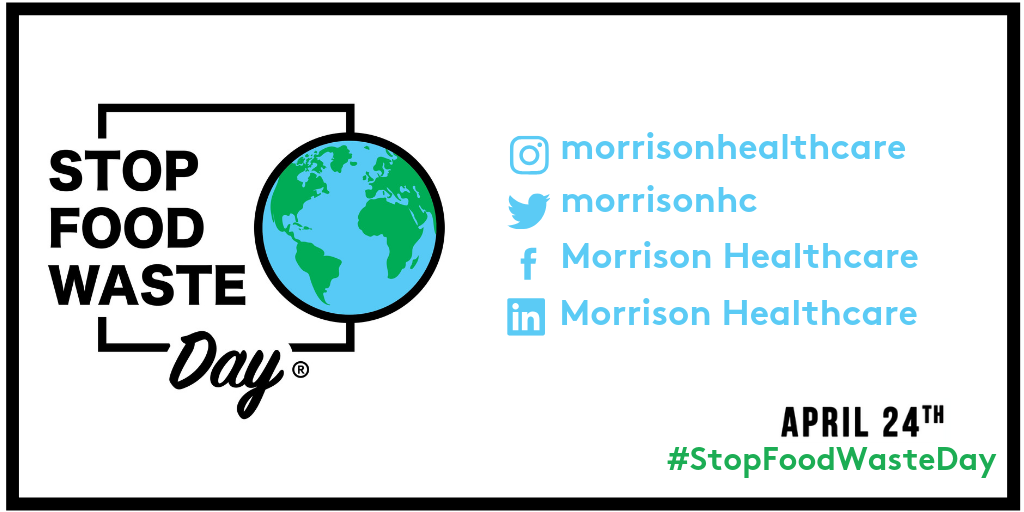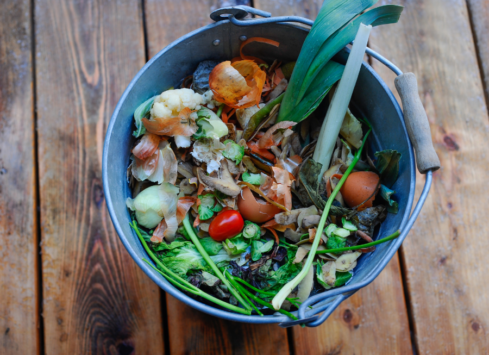Diverting Food from Landfills – Your Guide to Recovering Food and Composting
By Justin Newgaard, Corporate Executive Chef
From composting at home to food recovery programs that help feed the hungry, the Stop Food Waste movement is making inroads across our country since Compass Group began its initiative three years ago.
At the company level, we’re now part of a variety of programs that help feed the hungry in our communities. Working closely with Eatable, a consulting firm that helps us tracks food waste and start food recovery programs to donate surplus food, we are sending unused food from our kitchens to shelters, missions and churches – any place we can provide food at no cost for people who are hungry and need healthy, nutritious food.
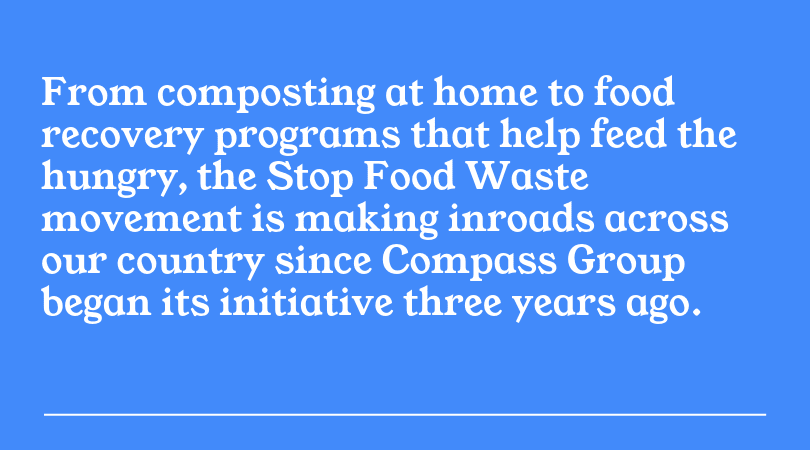
We are also working closely with clients to help them put together comprehensive sustainability and stop food waste plans. For example, we’re working with Jersey Shore University Medical Center to cook a Zero Food Waste dinner on April 24, our designated Stop Food Waste Day.
Morrison Food Recovery Programs
We operate several food recovery programs nationwide. One of my favorite ones is in Kansas City, Mo. at the Research Medical Center in Kansas City, regional executive chef Paul Holdshoe has teamed up with Missouri Organics to pick up food waste, soiled paper and some food service products for compost. We’ve also worked with Missouri Organics to roll out this program out to several other locations in Kansas City.
These programs have been so successful that there is momentum across the nation to start new food recovery programs all of the time. In February, working closely with Regional One Health in Memphis, Tenn., we began donating food daily to St. Vincent de Paul’s Ozanam Center. Morrison prepares leftover food into aluminum pans and freezer bags, as well as leftover bread and pastries, and serve between 150 and 200 people every day.
Together, we have provided healthy, nutritious food including spaghetti, corned beef and cabbage, lasagna, pot roast, chicken cacciatore, cauliflower and broccoli bites, mozzarella sticks and more.
For other hospitals, stopping food waste is becoming a top priority and an integral part of their missions. A great example of one hospital on the cutting edge of developing a comprehensive program is Jersey Shore University Medical Center, already a leader in using sustainable food.
Morrison Healthcare Corporate Executive Chef Greg Cordova will prepare a Zero Food Waste dinner for approximately 35 board members and administrators. The hospital’s leaders asked us to help plan this event to demonstrate their commitment to stopping food waste, and we gladly agreed.
Chef Cordova’s five-course, Zero Waste menu will include plenty of Imperfectly Delicious Produce – fruits and vegetables with some bumps and bruises – that are local and in season. Most courses will include vegetable scraps. For example, he will roast the outer skin of an onion – which is often thrown away – as part of a vegetable dip. One course will include eggs, but even the eggshells will be used to make a consommé, helping to clarify the soup and before straining them out. In the end, the shells will be used as much as possible before going into compost.
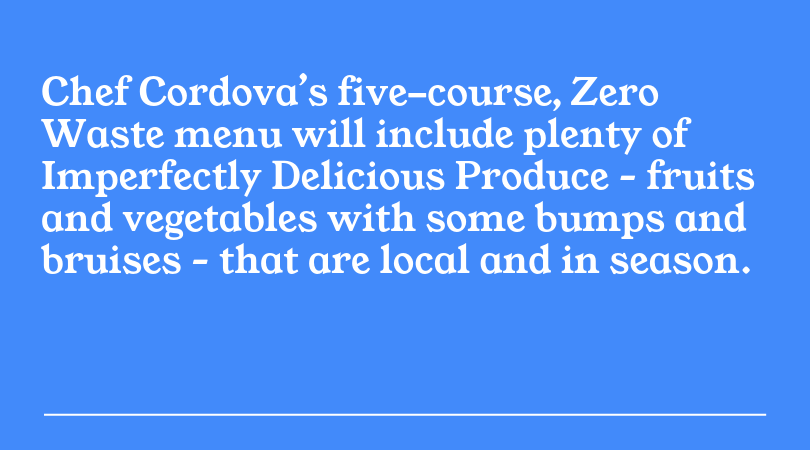
The dinnerware used for the meal will keep with our theme, too. We bought platters, plates and other dinnerware from a second-hand store. We will clean them after the meal and donate the dinnerware to a local women’s shelter.
Composting – How It Works
As individuals, despite our best efforts, sometimes all of us have food left over from meals that can’t be used. But it’s still possible to limit food waste and divert food from going to a landfill. That’s where composting comes into play – it’s a way for us to return food scraps to the soil, yet another way to eliminate food waste. Doing so adds nutrients to the soil and helps fruits, vegetables and other organic matter grow. I often use my food scraps for compost, then right back into the same garden many came from.
For anyone that wants to start composting, it’s a pretty simple process. Any beginner should keep it organic by saving scraps from fruits and vegetables. Do not use any animal by-products – bones, fat or skin.
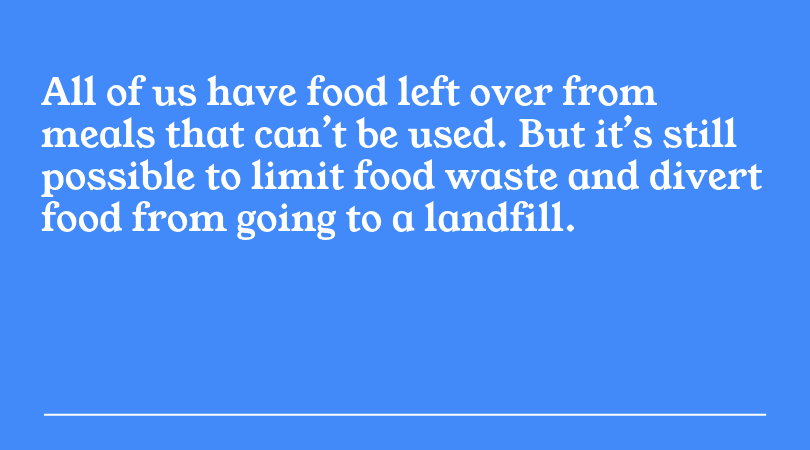
Here’s a good example. The next time you are preparing dinner, and you have onions, broccoli, or even potato peels, put all of the scraps in a baggie and freeze them. Once the gallon baggie is full, place the scraps in a pot filled with water and simmer for 2 hours, strain and if needed immediately it will be good in the refrigerator for 7-10 days. But if needing for a later time, use ice cube trays to freeze the vegetable stock.
The next piece of good news is that anyone living just about anywhere can do it. Even if you live in an urban environment, composting will still work. A person living in an apartment with a balcony can even buy an indoor composting bin.
For those that want to do more, here are other options:
- After cutting up a head of lettuce or celery stalk, take the base of the root and put it in a cup of water. The base will grow leaves and turn into a new head of lettuce.
- If you have a garden, you can also plant the root base and grow an entire new head of romaine.
Tips for Consumers – Food Recovery and Composting
Only Buy the Food You Need. We often worry about not having enough food, especially for a family of four or more, and end up buying more than necessary. Some food gets thrown out and leftovers often stay in the back of the refrigerator for too long.
When shopping, have a plan for each meal and only purchase items for those plans. Also, try and limit the purchase of items that may spoil in a few days. For example, there are often several bananas in a bunch – but not all get eaten. Don’t be afraid to only take three or four.
Start Slow. Put unused carrot and onion tops, and potato peels in baggies and store in the freezer. If you have a garden, bury those items in the soil.
Let Us Know If There Are Needs in Your Community. People across the nation can benefit from a recovered food program. If you want to make a major contribution to your community, visit local shelters or churches and find out what they need. The more knowledge you have and more people you meet, the better understanding you will have. If you find that there is a need, let us know if Morrison Healthcare can help! Please contact me at [email protected].
It’s #StopFoodWasteDay!
- Stop Food Waste Day is about educating and igniting change. Food waste is a global issue with a wide variety of impacts. As a Compass Group family, we’re uniting to raise awareness and make small but significant changes in how we care for our food.
- Take the Stop Food Waste Day Pledge!
- Follow along on our social media platforms so you don’t miss anything!
